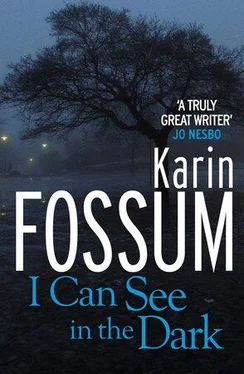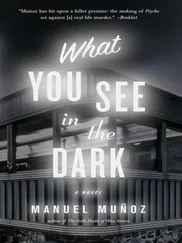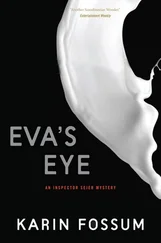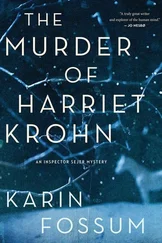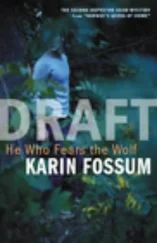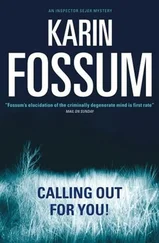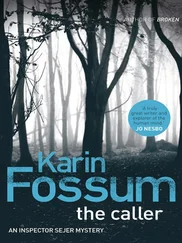‘I come into contact with lots of people,’ he went on. ‘And I see how they live. It’s interesting. I mean, the way we want to appear to others. Riktor,’ he added. ‘An authoritative name. Your father’s choice?’
‘My mother’s,’ I answered tersely.
‘I think that a house says a lot about its owner. The things we surround ourselves with. There isn’t much lying about in here. It’s very tidy.’
‘I always keep it that way,’ I replied. ‘Mess has a habit of migrating to the brain, and there’s enough litter up there as it is. I can’t stand untidiness. It shows a lack of discipline.’
He considered what I’d just said.
‘And you’re concerned about discipline?’ Again he flashed his quick smile.
‘Naturally,’ I replied.
He kept quiet again for some time. I sat waiting politely, it was evident that he had plenty of time, ensconced as he was in the corner of the sofa.
‘You’re a nurse?’ he asked at length.
I nodded. I crossed one leg over the other and kept calm, I relaxed my shoulders, raised my chin, because I know that body language is important. So he realised that I worked as a nurse. But the fact that he’d already made a number of enquiries wasn’t disquieting in itself, I’d been expecting that.
‘It must be demanding,’ he hazarded. ‘Having to attend to other people’s needs the whole time.’
I took my time replying. It was important to maintain composure, he mustn’t be allowed to push me over the edge.
‘Let me put it this way: you develop a special attitude to death.’
‘How so?’ he enquired.
‘Because it happens all the time. The patients I look after are frail and elderly. And, if you’ll forgive me using a crude, if accurate, expression, they drop like flies.’
‘Well, that’s one way of putting it,’ he said, a smile on his lips. ‘But presumably with old people there isn’t a lot of drama about it. Am I right?’
‘Some of them simply die in their sleep,’ I said, ‘we hardly notice their passing, and so yes, to a certain extent of course you’re right. But there are always exceptions. Some of them cough up a bit of blood. And some fight, struggling against the inevitable.’
‘A death agony, you mean?’
‘Yes. It’s more common than people think. And it’s something you never forget, once you’ve witnessed it.’
‘D’you like it?’ he asked bluntly.
‘I beg your pardon?’
‘Let’s not beat about the bush here,’ Randers said. ‘You deal with death on a daily basis, just as I do. So between ourselves: there are certain reasons for our choice of job. You’re attracted to the drama of the situation, isn’t that right?’
‘It makes an impression,’ I replied. ‘It certainly does make an impression. That’ll have to do for an answer.’
I was trying to work out where the conversation was leading. But talking about my job felt safe, so I answered his questions willingly.
‘You must have a special relationship with death and decay as well,’ I said. ‘I mean, because of what you do.’
The fleeting smile came and went.
‘Yes, I’ve seen most things. Some of it’s horrifying, and I never get used to it. There are certain details I could well do without. But I won’t rehearse them for you. You’ve probably got enough horror stories of your own.’
He sat studying my face. As if the crime might be visible there, as a particular gleam in the eyes perhaps, and he looked at my hands as if they might be stained black, those guilty hands. But the killing was done and justified, it was more like dregs at the bottom of a bottle. There was silence, as we sat weighing one another up. He was wearing an insufferable grin, as if there were lots of things he knew, while I went delving into hundreds of ideas searching for an explanation.
‘So now you’re going from door to door?’ I enquired lightly.
Randers stretched an arm along the back of the sofa. ‘No, not from door to door,’ he said. ‘I’m only calling on you today.’
His smile widened.
‘Aren’t you going to ask why I’m here?’
I sat up in my chair. His comment caught me slightly unawares.
‘Naturally. Obviously you’re here for some reason.’
‘If the police arrived at my door, I would have asked straight away,’ he said. ‘Asked them why they were there.’
‘Well, yes, I’m on tenterhooks,’ I said, inwardly cursing my slowness, for not thinking of that, for not thinking to ask what he wanted.
‘We believe there’s the possibility of a suspicious death,’ he said gravely.
I looked at him for a good, long while. Weighing every word.
‘A suspicious death. Believe? You’re not certain? Have you come just to check, to make sure a crime hasn’t been committed? In which case it’s rather a relief, I can relax a bit. Carry on, I’m all ears.’
Once again he waited a long time. The silence was filled with noise from inside my own head, where my thoughts were in tumult.
‘We call it reasonable grounds for suspicion,’ he said. ‘Just now we’re seeing how the land lies. You’re an obvious candidate for questioning.’
‘Why?’
Randers leant forward again.
‘There appears to be a clear connection between you and the victim. What people have seen, events and other details. We’ve got plenty of time. We’ve begun an investigation, and it will keep ticking over until everything’s cleared up.’
‘I live on my own,’ I put in. ‘Well, I only want to mention it, because it’s relevant. My connections to other people are extremely limited. So I find what you’re saying pretty incomprehensible.’
Randers stretched his legs. He was wearing expensive shoes with leather laces.
‘Everyone has connections to someone,’ he declared. ‘And you’re no exception.’
‘Yes,’ I retorted, ‘I am an exception. But you don’t realise it, because it’s part of your job to believe that all people have things in common. I don’t wish to sound arrogant, but I’m really not much like other people.’
‘What do you do in your spare time? If you don’t have anything to do with people.’
‘I often go to the park near Lake Mester. I sit by the fountain and ponder life.’
‘And death,’ Randers interjected. ‘You ponder death as well, no doubt. Isn’t it a part of your work?’
‘Yes, that’s true, I often ponder death. But I know nothing about what you call a suspicious death.’ I shrugged my shoulders. ‘So I’m sorry. You’ll just have to find another door.’
Randers held my gaze. And even though I can take quite a lot, I was extremely nervous.
‘Often the motives for murder are trivial,’ Randers explained. ‘And that’s our theory about this crime.’
‘You don’t know that,’ I said. ‘It’s merely an as-sumption.’
‘Correct, an assumption. Because that’s what my ex-perience tells me. We’ve got some clues as well, important leads. We can return to that, we’ve time enough. What are you like, Riktor? Get on well with people?’
‘No,’ I admitted, ‘not especially. That’s why I keep away from them. But I like superficial contact of the sort I can strike up with patients on the ward. They haven’t long to go, after all.’
Randers rose from the sofa, crossed to the window, and stood gazing through it.
‘Do you often stand here looking out?’
‘I do. And people pass by. They cycle, or they run. Some push prams, some have dogs. I like making up stories about them,’ I said, ‘where they’re going to, why they’re running, what they’re running from, why they wanted that child, if they regret things perhaps, regret all those choices that can’t be undone. It gives me a feeling of control. And it’s important for me to have control. There. Now you’ve got some data for your perpetrator profile.’
Читать дальше
